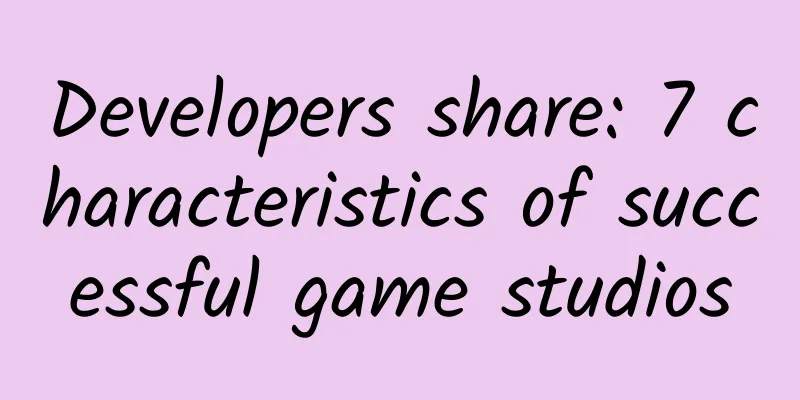What to do when H-index catches up with age? | The Graveyard of Quantum Many-Body

|
Written by | Carlo Let's first popularize the content of science and explain what H-index is. Wikipedia says: H-index was proposed in 2005 by Jorge E. Hirsch, a physicist at the University of California, San Diego (Editor's note: Yes, you read that right, the god who has been fiercely criticizing Ranga Dias who claimed to have made "room temperature superconductivity"). It is a mixed quantitative indicator that can be used to evaluate the number and level of academic output of researchers [1]. I have mentioned in previous articles about Hirsch's contribution to the development of fermion determinant Monte Carlo methods for quantum many-body computing. Interested readers can refer to the literature [2] to get a glimpse of his unique style. Hirsch is not only good at academic research himself, but also painstakingly designed the H-index for the entire academic industry, so that everyone can use this number to calibrate the number of researchers' papers and the number of times they have been cited. The calculation method is very simple: if a person has N papers in all his academic articles that have been cited at least N times, his H-index is N. Through this index, everyone can have a concise and general understanding of their own and others' academic output levels, so that they can quantitatively judge people even without understanding the specific content of the research. Isn't that wonderful? Figure 1. The papers published by scholars are arranged in reverse order of citations to obtain their H index. 丨Image from Wikipedia, https://zh.wikipedia.org/wiki/H%E6%8C%87%E6%95%B0 To be more specific, as shown in Figure 1, for scholars and researchers, that is, contemporary scholars, they only need to sort all their published papers from high to low according to the number of citations, and then search the sorted list from front to back. As long as the current citation volume (y axis) is greater than the current article mark (x axis), the H-index is increased by 1, and the final result is the final H-index. Therefore, the H-index can comprehensively reflect the number of research papers of contemporary scholars and the citation of the papers. For example, among the 40 articles published by Xiao Ming, 30 of them have been cited more than 30 times, and his H-index is 30. The higher the H-index, the more successful the scholar is in the industry. If Xiao Ming is 30 years old this year, then his H-index will catch up with his age. In our environment, such a person is definitely a young talent. Such talents are also probably imitating the appearance of experienced people in various occasions, shaking their heads, jumping up and down, and enjoying it. H-index is a quantitative symbol designed to measure researchers, that is, contemporary readers. It is an objective indicator, without any likes or dislikes. However, I recently noticed that my H-index has also caught up with my age, and I inexplicably developed a strong anxiety. Under the anxiety, I began to ponder the history, culture and psychological connotations behind this matter. If I didn't ponder it, it would be fine. The more I pondered, the more I found that there were big problems with this matter, which almost triggered my mid-life crisis. It took me many days to get out of it. So I decided to share this painful process of self-examination with my peers and colleagues, to comfort the past and to entertain the future. After a few days of serious thinking, coupled with insomnia and anxiety and inability to eat, I came to the basic conclusion that the fact that one can notice that the H-index has caught up with one's age actually reflects the pathetic psychological state of the person who notices it. This is a manifestation of the researchers' lives being ruthlessly destroyed and alienated by the contemporary academic ecosystem - turning the individual's pursuit of knowledge and fun into a number, some citations and a ranking. It sounds a bit scary, but the more scary fact is that the miserable life of researchers, that is, contemporary scholars, has different levels of misery. In contrast, in our unique historical and cultural environment, there are many more miserable things than noticing the H-index, such as noticing a string of titles, a hat, some resources, etc. However, the fact is that these miserable things, for many miserable contemporary scholars, are most or even all of their fame and life. If you think about it carefully, in our cultural genes, the genetic coding of noticing these external things has actually existed since ancient times and is more severe today. These words may sound a bit gloomy and evil, but they are the real experience and thinking of me. Speaking them out makes people feel helpless, and in fact, they have caused a great psychological shadow on me, so that I have insomnia and anxiety for several days. After a few days, in addition to the disgust for these pathetic people from the bottom of my heart - including disgust for myself - I also learned a new skill, which is to smell the strong smell emanating from these pathetic scholars throughout the ages. This smell can be called "ganye" in the Tang and Song dynasties, "xuan" and "turban" in the Ming and Qing dynasties, and it is even more unbearable in our era, degenerating into "excellent" smell, "outstanding" smell, "thousands of people" smell, "ten thousand people" smell, and even "X" smell, etc. In short, there is no popularity and knowledge-seeking smell. Such smell, although there are many names, but every move can be smelled across the zoom screen. It makes me feel dazed from time to time, as if the characters in The Scholars, such as Kuang Chaoren, Yan Gongsheng and even the well-known Fan Jin, are actually around us. The reason for this stinking situation is that, in the final analysis, the latter always has the upper hand in the battle between democratic ideas and chieftain ideas. A wise man analyzed the matter very thoroughly, and I copied it here directly: "Dong Zhongshu once said, 'Do what is right without seeking profit, and name the way without counting the merit.' These two sentences seem to make sense. If they are used in academic research, this attitude of studying for the sake of studying is excellent. Unfortunately, China does not value learning, but only uses it as a signboard for empty talk and high-sounding rhetoric, which has a very bad result. I do not admit that I am a scholar, because I can neither write pure literary articles nor hate the scholars, that is, the so-called pure and famous people. The hereditary nature of Chinese scholars is that their words and deeds are inconsistent. What they do is write eight-legged essays, smoke opium, play with small feet, and fight for power and profit, but they are full of etiquette and integrity, like a clown saying white, no longer afraid of blushing. It has been like this since ancient times, and it is even more severe today. At this point in life, we are really honored to get rid of the status of scholars and fall into poverty." Alas, I dare not speak out what I do not truly believe and take for granted, and I have tried hard to practice what I have said. In fact, this is just common sense, just like people not learning to bark like dogs or chewing dry shit. It is not a miracle. These thoughts triggered by the H-index and skills that I do not want to have, now have to be said as miracles, so I feel sad and in crisis. It is really "middle-aged people are easily affected by sorrow and joy, and are heartbroken when they are touched by things. Although they put on a strong face to face the world, they are angry inside. Every time I think of it, I wish there would be no tomorrow." Having said so much, what should we do when we find that our h-index is catching up with our age? The answer is, do nothing. In fact, it is best not to find this out. "Life is full of regrets, and knowledge increases only doubts." At this age, or at this H-index, we don't have much time and energy to imitate some people who pretend to be "excellent" and "outstanding" every day. We are born under the pressure of genetic concepts, and we are always afraid of the return of the ghost who seeks fame instead of learning. We don't know what to do, so we should not squander the already very limited desire for knowledge and truth. In the remaining time, we should do something really beneficial and interesting to ourselves and learning. References [1]. Hirsch, Jorge E., (2005), "An index to quantify an individual's scientific research output," PNAS 102(46):16569-16572 [2] Look! These people who invented algorithms This article is supported by the Science Popularization China Starry Sky Project Produced by: China Association for Science and Technology Department of Science Popularization Producer: China Science and Technology Press Co., Ltd., Beijing Zhongke Xinghe Culture Media Co., Ltd. |
Recommend
5 steps to quickly get started with Weibo channel operations!
As the gossip center of the entire Internet, Weib...
Summer vacation is coming. How should parents manage their children’s diet and health?
Copyrighted images from the gallery, unauthorized...
How to become an operations expert, user growth system
Let’s first understand the difference between use...
China Passenger Car Association: China's auto sales in April 2022 were 1.043 million units, a year-on-year decrease of 35.5%
The trend of new energy vehicles is irreversible!...
Shifting Gears: COVID-19 and the Rapidly Changing Automotive Consumer
Nearly half of consumers (46%) worldwide are cons...
The little tropical fish's temperament changed drastically. It turned out that mice were the cause of the change.
Image credit: Rachel Gunn Pomacentridae is a kind...
When Gree and Midea become the Apple of the air-conditioning industry, what is the purpose of the nine-year patent dispute between Samsung and others?
The domestic air-conditioning market has now ente...
DedeCMS template common tags
I have been searching for the commonly used tags ...
0 investment, 0 purchase of traffic, and obtaining millions of accurate users, what is the magic of this promotion strategy?
Last year, I started to coordinate the operation ...
In addition to SEM promotion, why do we need to invest in native advertising?
The key differences between native advertising an...
3 elements for beginners of APP operation and promotion strategy!
Operation and promotion require the most user res...
Jack Ma is also optimistic! Will VR achieve a qualitative change in 2016?
[[161438]] At the end of October 2015, news came ...
What are some tips for early stage promotion of startups?
Every time when various Internet celebrities shar...
Can WeChat be used like this? Hidden WeChat operations that will open your eyes
WeChat is used every day, but do you know how man...
How was the deepest hole on Earth dug?
Author: Gui Youyu Reviewer: Zhou Yingcao, Chief E...









